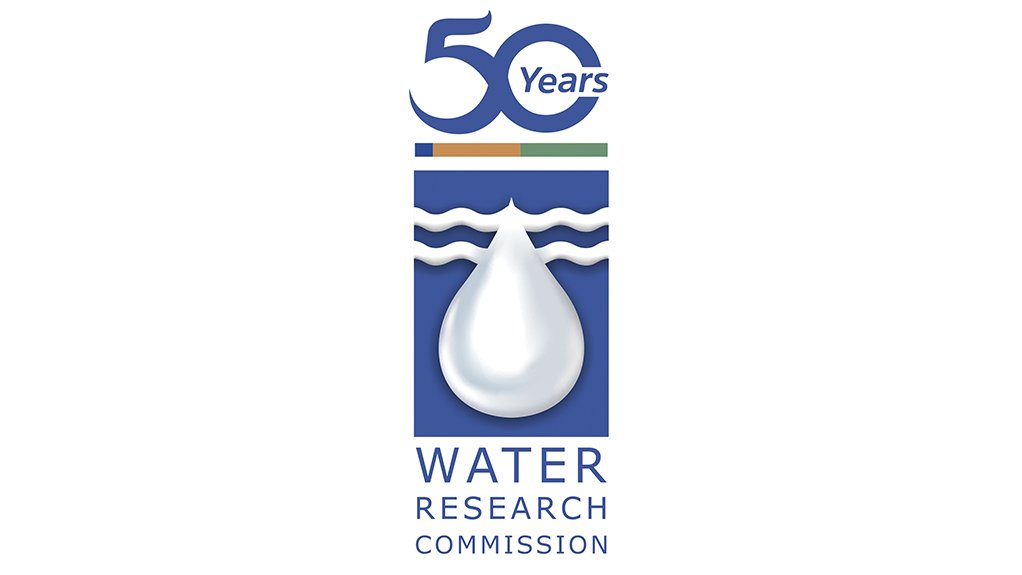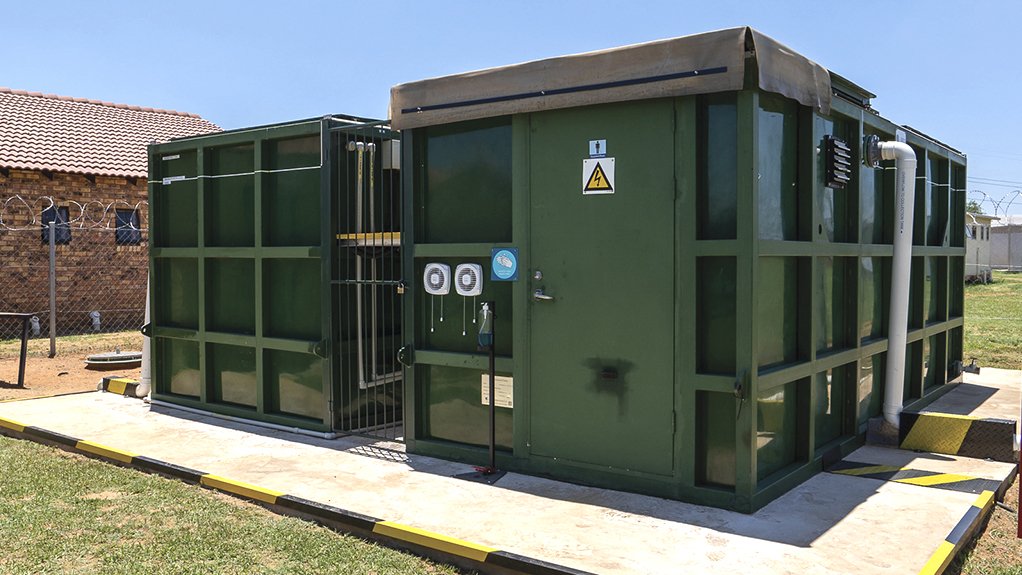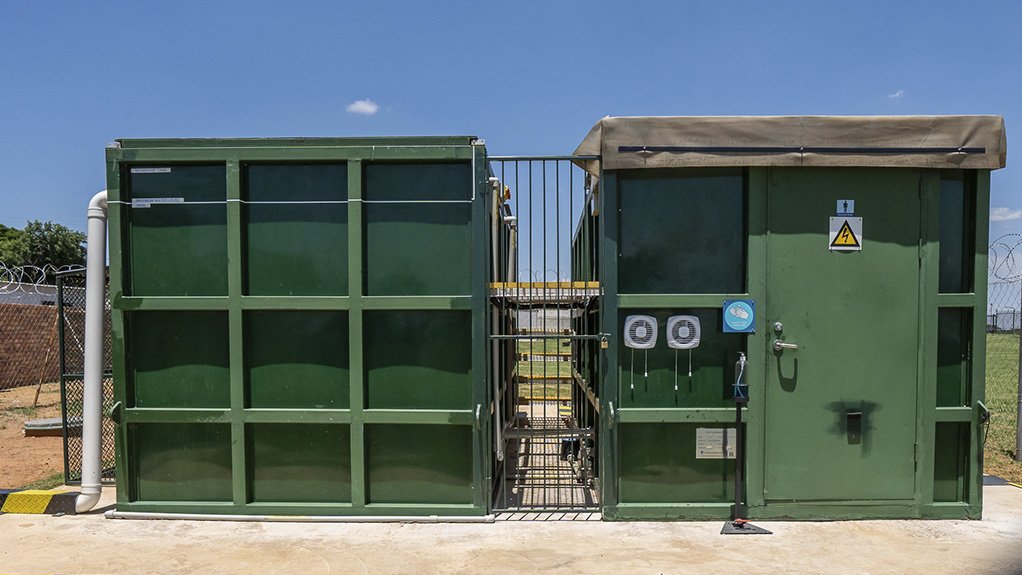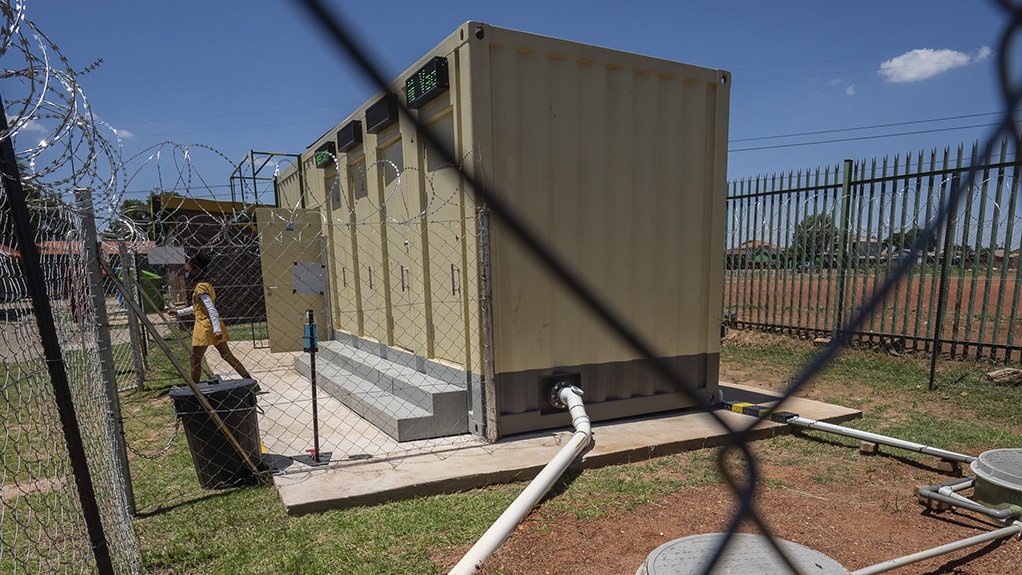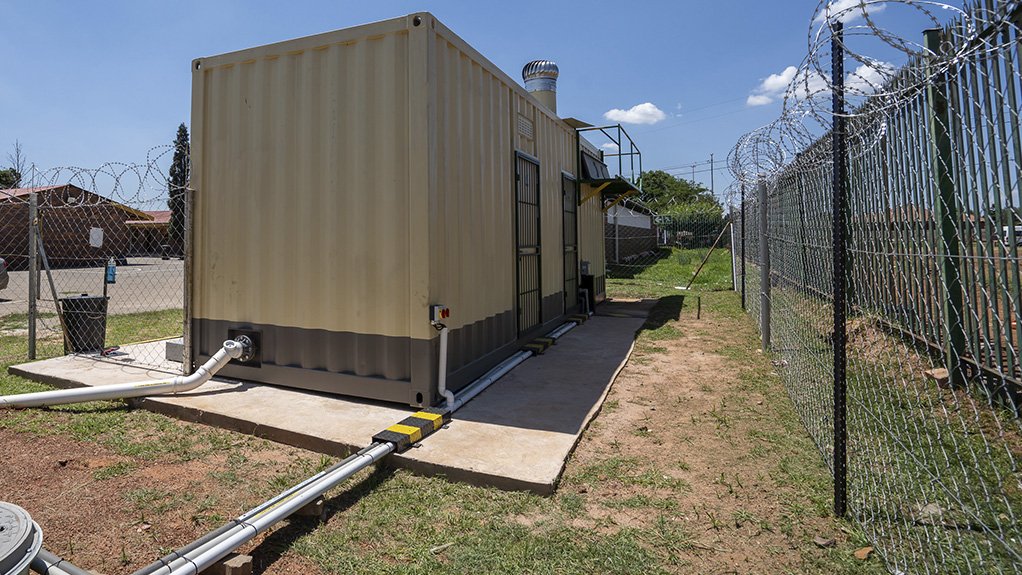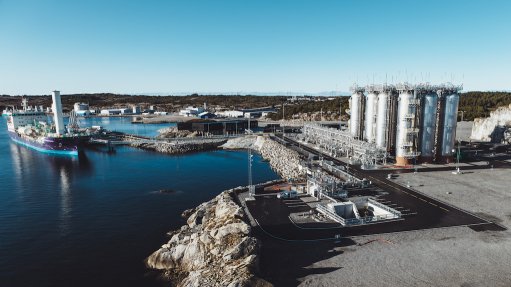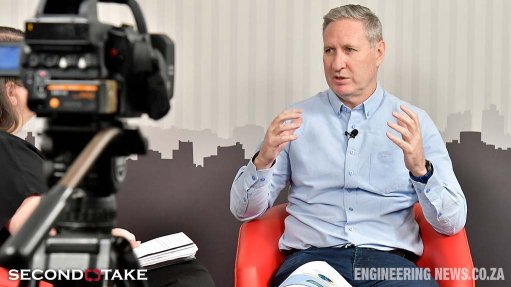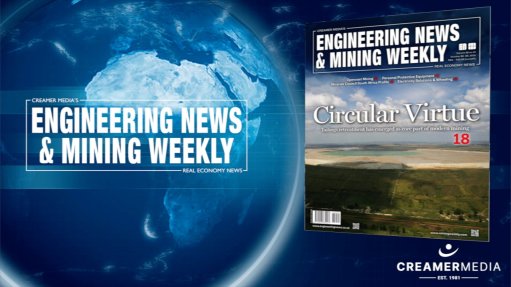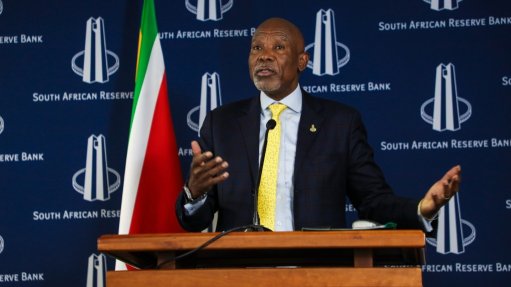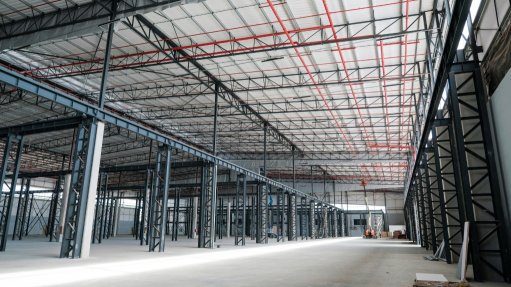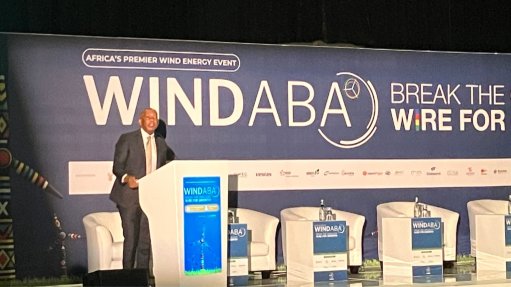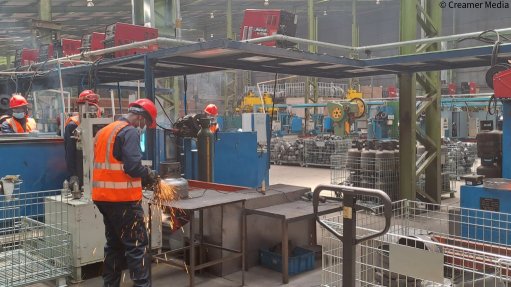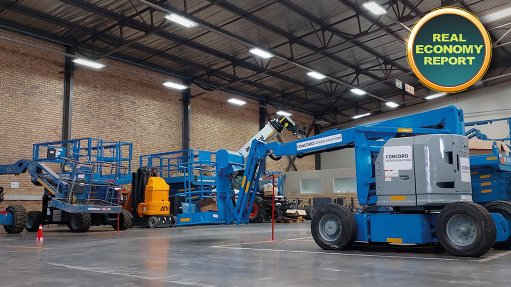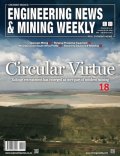SaniTI – Transforming sanitation towards dignity for all
The COVID-19 pandemic has underlined the importance of access to safe, hygienic water and sanitation services for the population’s health and wellbeing. While a significant number of South Africa’s households have access to safe sanitation, reaching those who still lack adequate access requires new and innovative solutions.
Leading this “brown revolution” in South Africa is the Water Research Commission (WRC) under the banner of the Sanitation Transformation Initiative – also known by the acronym SaniTI. This is an approach that aims to disrupt the current sanitation paradigm by presenting a new pathway and a national strategic direction for the South African sanitation industry for various partners and stakeholders to break away from the current binary paradigm to a more dignified and water secure paradigm. The SaniTI initiative was one of the main foci of discussion of the fifth WRC Symposium, which was held virtually from September 20 to 22, 2021, under the theme Re-Imagine, Re-Build and Repeat: Future Proofing Water.
Previous apartheid spatial geography planning meant that large proportions of the South African population did not receive adequate potable water and sanitation provision. Full waterborne systems were scarce in these areas. With the advent of South Africa’s new democracy in 1994, the Government focus and priority shifted to the provision of access to basic water supply and sanitation services for unserved citizens.
While much progress has been made in the last two decades in tackling the huge inherited backlogs, the current urban migration trends and increased population growth has meant that municipalities have to deliver sanitation services under challenging planning scenarios, especially in growing informal settlements without formalised housing arrangements and government subsidised housing areas of which there is an ever increasing backlog.
For the former, it is technically challenging to provide sanitation services to individual homes within an informal housing arrangement. The laying of sewers in unplanned housing sites limits the municipalities’ technical approach. Temporary options in the form of onsite solutions, such as chemical toilets, can be provided, but are expensive to implement, while latrine technologies may require frequent emptying cycles in areas not conducive to such a task.
While servicing these challenges, responses become more complicated as we have deal with issues of climate change, increased dry spells and droughts, and shortages of water in the near future. This is making us think innovatively of how we build greater water security in the future. One low hanging opportunity is sanitation. For too long we have used large amounts of potable water to remove human waste from domestic homes - nearly 40% to 50% of household water consumption is used for domestic sewage. While it has brought significant health benefits, it has also created a growing complex pollutant to be managed downstream. However, human waste is a valuable resource – full of nutrients, energy and useful chemicals and, if approached as such, warrants a disruption to the sanitation environment. Thus, realising this water opportunity could build greater security.
Therefore the SaniTI approach to sanitation service delivery points to a strategic re-think of how sanitation is provided; a change to a systems approach in which all aspects of sanitation are inter-related and inter-dependent and the adoption of business models, such as circular economy and market entry and market-based research, as part of the approach.
Symposium delegates heard how the SaniTI strategy incorporates the elements of behaviour change, industrial development, policy development for new sanitation, technology standards and regulations, technology testbeds, research, development and innovation (RDI) focused on supporting the strategy and sanitation academy which build the next cohort of skill and artisans required to service this new frontier. The outcome will result in:
- New sanitation that meets user needs and expectations while being less demanding of natural resources. The new sanitation must be replicable on a large scale and the components easily sourced throughout the supply chain.
- Circular economy principles in which products in the value chain are recycled or re-used with the addition of other revenue streams.
- Establishing market needs and demands.
- Presenting an RDI pathway to achieve technical, policy and procurement targets in line with the vision.
- Creating a sanitation manufacturing industry around the technical advancements and creating several new jobs and employment around this.
The WRC will support transforming the sanitation environment through four programmes that are aligned to the vision of SaniTI. These include:
Re-engineered toilets
The scope of this programme includes the development of innovative toilet options that combine the benefits of flush systems and dry sanitation systems while eliminating their limitations (reducing flush volumes, eliminating pathogens and sludge production, non-requirement for laying of sewers, and being appealing to users). Solutions developed must take into account circular economy principles as part of their design and operation, including the recycling of water and nutrients, energy-saving/generation and capability to generate by-products of commercial value.
Sanitation sensitive design
The development of institutional and municipal financial, planning, management, social and communication models that align to the objectives of SaniTI is required for this new form of service delivery to achieve critical mass. The focus of this programme is
therefore the development, testing and evaluation of these models to ensure sustainability of approach. This programme addresses institutional and municipal sustainable service provision through incorporation of “sanitation as a business” approaches; creating enabling environments for new sanitation models; training, education and awareness aspects which contribute to sanitation sensitive design; and improved city-wide hygiene behaviours and health indicators.
Municipal sludge valorisation
Municipal wastewater sludges and faecal sludges from non sewered systems are technically challenging to deal with. There is a need for cost-effective solutions to deal with municipal wastewater and faecal sludges. The scope of this programme is to promote the development of appropriate and cost-effective techniques for municipal and faecal sludge treatment and/or valorisation. The focus of this programme is on research, development and innovation that optimises current treatment options and future valorisation-focused systems.
Sanitation-linked business (SANIBUS)
The scope of this programme includes the development, inclusion, application and evaluation of business approaches as part of sanitation service provision. Traditionally, sanitation provision is subsidised through the public sector with little expectation of full cost recovery. The private sector can play an important role in accelerating sanitation provision by offering alternate sanitation products and services at appropriate prices while generating income. This programme focuses on the development, application and evaluation of business plans for the dual purpose of income generation and sanitation provision. This includes market research and analysis, financing arrangements, business legislation analysis, product and service development, business management, and financial planning associated with new sanitation models.
While closing the sanitation gap, innovative sanitation technologies can save freshwater use and transform pollutant pathways to valorisation of human waste while establishing new utility management and processes. This means evolving away from pure hardcore engineering and asset management towards managing and regulating several supply chains.
This transformation will embed a new market for sanitation and meet several of the United Nations Sustainable Development Goals while ensuring dignity for all.
For more information please contact
Dr Sudhir Pillay at sudhirp@wrc.org.za
Article Enquiry
Email Article
Save Article
To advertise email advertising@creamermedia.co.za or click here
Comments
Press Office
Announcements
What's On
Subscribe to improve your user experience...
Option 1 (equivalent of R125 a month):
Receive a weekly copy of Creamer Media's Engineering News & Mining Weekly magazine
(print copy for those in South Africa and e-magazine for those outside of South Africa)
Receive daily email newsletters
Access to full search results
Access archive of magazine back copies
Access to Projects in Progress
Access to ONE Research Report of your choice in PDF format
Option 2 (equivalent of R375 a month):
All benefits from Option 1
PLUS
Access to Creamer Media's Research Channel Africa for ALL Research Reports, in PDF format, on various industrial and mining sectors
including Electricity; Water; Energy Transition; Hydrogen; Roads, Rail and Ports; Coal; Gold; Platinum; Battery Metals; etc.
Already a subscriber?
Forgotten your password?
Receive weekly copy of Creamer Media's Engineering News & Mining Weekly magazine (print copy for those in South Africa and e-magazine for those outside of South Africa)
➕
Recieve daily email newsletters
➕
Access to full search results
➕
Access archive of magazine back copies
➕
Access to Projects in Progress
➕
Access to ONE Research Report of your choice in PDF format
RESEARCH CHANNEL AFRICA
R4500 (equivalent of R375 a month)
SUBSCRIBEAll benefits from Option 1
➕
Access to Creamer Media's Research Channel Africa for ALL Research Reports on various industrial and mining sectors, in PDF format, including on:
Electricity
➕
Water
➕
Energy Transition
➕
Hydrogen
➕
Roads, Rail and Ports
➕
Coal
➕
Gold
➕
Platinum
➕
Battery Metals
➕
etc.
Receive all benefits from Option 1 or Option 2 delivered to numerous people at your company
➕
Multiple User names and Passwords for simultaneous log-ins
➕
Intranet integration access to all in your organisation



